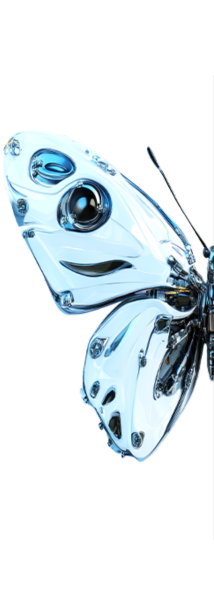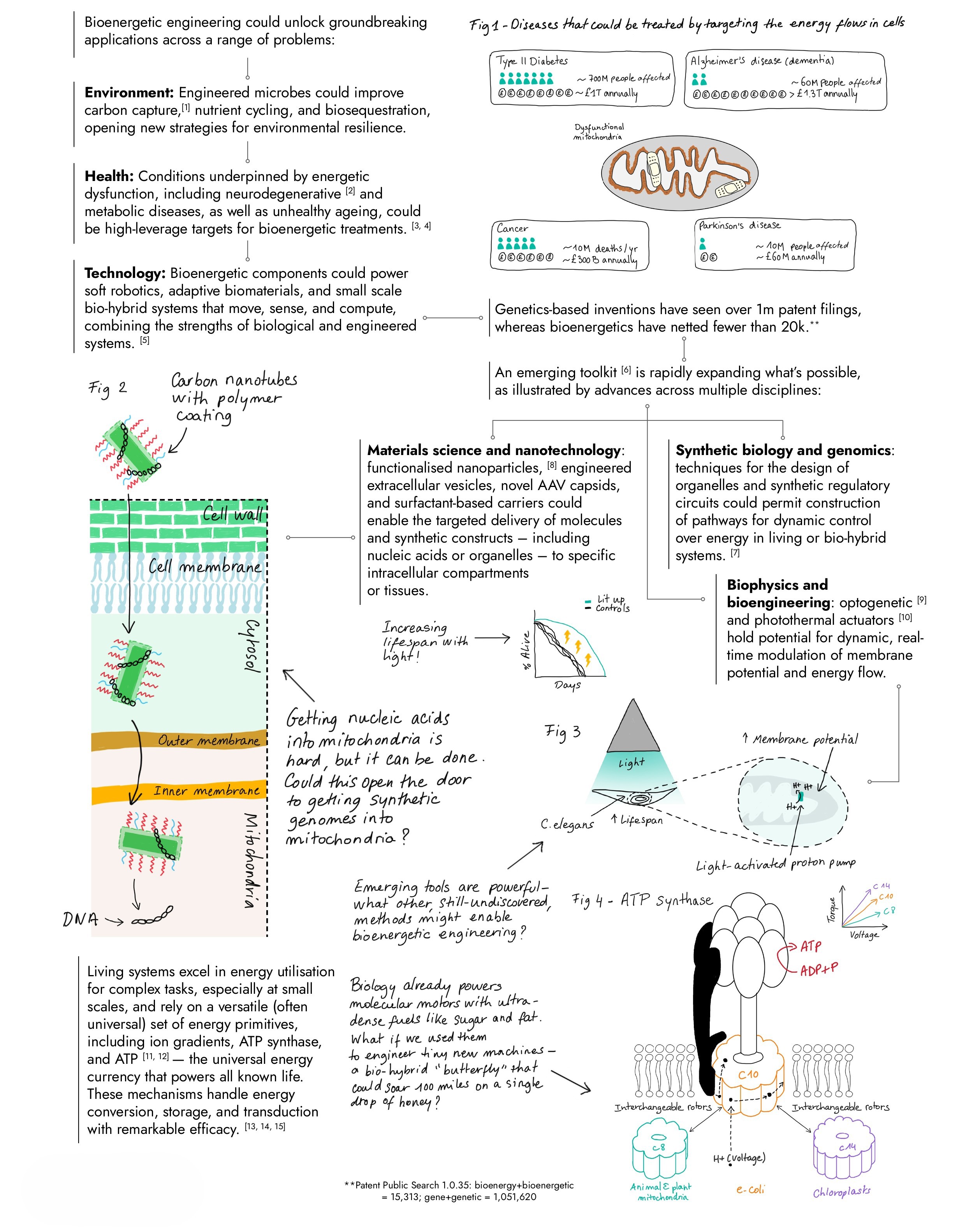What is an opportunity space?
Opportunity spaces are areas of research that we believe are ripe for breakthroughs. They are defined by our Programme Directors, and must be highly consequential for society, under-explored relative to their potential impact, and ripe for new talent, perspectives, or resources to change what’s possible.
Beliefs
The core beliefs that underpin this opportunity space:
While information has been the major focus of modern biology, energy and information are both fundamental to life → bioenergetic engineering has the potential to catalyse advances on the scale of the genetic revolution.
Life uses powerful energy building blocks, like ATP, that are unlike any used in engineering → leveraging these primitives will enable a range of bio-hybrid devices and other systems whose performance far exceeds today’s best designs.
The feedback loop between engineering disciplines and fresh insights is accelerating → we’re at an inflection point where scientists and engineers from many disciplines can begin treating life’s energy machinery as a design space.
Programme: Precision Mitochondria
To build a programme within an opportunity space, our Programme Directors direct the review, selection, and funding of a portfolio of projects.
ARIA is launching a programme backed by at least £55 million to make the mitochondrial genome programmable in vivo. For decades, mitochondria have remained the last major genome that cannot be readily engineered. This programme aims to create a foundational toolkit to overcome this long-standing challenge and transform mitochondrial biology.
The immediate goal is to achieve persistent, reproducible expression of a novel gene from engineered mitochondrial DNA (mtDNA) in a vertebrate system.
Sign up for updates
Stay up-to-date on our opportunity spaces and programmes, be the first to know about our funding calls and get the latest news from ARIA.


